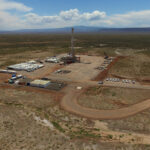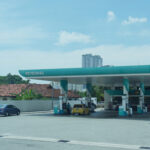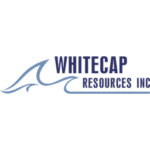From Alaska Highway News
Petronas Canada plans to electrify its operations in Northeast B.C. as it reaccelerates its drilling program and brings spending to $1 billion a year by 2022.
The company, formerly Progress Energy, has been in a holding pattern since 2016 after spending three years appraising what proved to be more than 200 trillion cubic feet of natural gas reserves in its North Montney holdings, and prompted it to re-evaluate its liquefied natural gas project planned for Prince Rupert.
Though it cancelled Pacific NorthWest LNG, the company has spent the last two years retooling its strategy to develop its massive reserves for the long-term, executives told a Fort St. John Chamber of Commerce audience Tuesday night.
“We also looked at what other people were doing across the industry and in the United States as well, and we want to thank you for your patience during this time. We know it’s never easy when a company starts to stop spending money,” said Nicole Deyell, vice-president of development.
The company had spent $5 billion proving wells in the Montney between 2013 and 2016, and was the most active driller in B.C., accounting for roughly one-third of all wells. It recently brought in a rig and resumed drilling in October.
The company plans to build slowly from there in 2019, with two rigs to drill 30 wells and boosting spending to just under $500 million. By 2022, it plans to have up to six rigs in the region drilling up to 80 wells, with spending reaching $1 billion.
“You’re not going to see the same level of activity we had in 2013 to 2015,” Deyell said.
“We’re building a very measured program that we’re going to build up in stages. So what you’ll see from us is slow, steady increase in activity as we drill wells and put them into production.”
Around 63 trillion cubic feet of Petronas’ reserves are recoverable with today’s technology, Deyell said. Of that, 7 tcf will be sent west to the LNG Canada project in Kitimat, in which Petronas bought a 25% share in May.
The company has also committed 700 million cubic feet per day east through the North Montney Mainline, currently under construction, and is building two gas plants in the region to support that, Deyell said. The company continues to look for new markets, but will not be reviving Pacific NorthWest LNG.
Petronas has recently committed to the federal government to lead the development of an electrification plan in Northeast B.C., Deyell said. The company will be working with all levels of government, First Nations, and the public in the new year on that plan, she said.
“We believe this could be approximately 250,000 tonnes of CO2 equivalent per year that’s reduced,” Deyell said.
Petronas Canada President and CEO Mark Fitzgerald was scheduled to speak at the event in Fort St. John, but couldn’t make it due to the weather.
As Petronas rolls out its strategy over the next three years, the company is looking at its community and workplace culture, said Liz Hannah, vice-president of external affairs and communications.
“We’re very focused on making sure it’s not just what we do, but it’s also how we do it. We are very focused on making sure that we are going to be the kind of neighbour that you want in your backyard for a very long time to come,” Hannah said.
“What we are committed to doing is making sure that we build on the relationships we already have here, that we grow those and we earn your trust.”
The company couldn’t put an estimate on how much it planned to spend on community sponsorships and investments, but the board will meet in February on that matter.
The company wants to be held accountable for its performance and practices so it can be a trusted employer and community partner in the region, Hannah said.
“We can’t talk about doing anything else if we cannot perform with excellence,” Hannah said.
“If we say we’re going to do something, we need to own that. We have very focused execution. If we do something wrong, we want you to tell us. If you feel that we’ve done something right, if you feel that we should be doing something better, please let us know. We want to make sure we are earning that trust, and we want to make sure that our success is shared success.”






